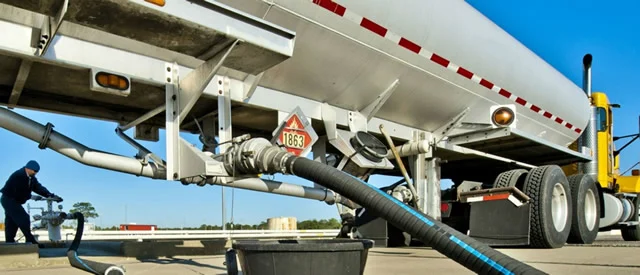Business
Aviation Crisis: We Are Yet To Feel Impacts Of FG’s Intervention – Airline Operators

The Airline Operators of Nigeria (AON) has said it is yet to feel the impacts of the Federal Government’s intervention in the aviation fuel crisis.
The airline operators, Nigeria National Petroleum Company Limited (NNPC), Central Bank of Nigeria (CBN) and relevant regulators in May reached agreements to end volatility in the price of aviation fuel, also known as Jet A1.
The parties agreed that six million litres of aviation fuel would be provided at N480 a litre for three months in what seems like a forex subsidy pending when the carriers would be granted a license to import the commodity.
The agreements were reached at the end of the meeting summoned by the House of Representatives leadership to avert airline operators’ planned shutdown after aviation fuel reached an all-time high of N700 per litre.
But the airline operators said the aviation industry in Nigeria has continued to struggle because the Federal Government’s interventions have not been fully implemented.
The Chairman, United Nigeria Airlines Limited and AON spokesperson, Obiora Okonkwo stated this on Tuesday while speaking with newsmen on the sidelines of an investiture in Abuja where he was installed as the National Grand Patron of Ndigboamaka Progressives Market Association, the umbrella organisation of all Igbo traders in Lagos State.
READ ALSO: Disappointments As Nigerian Air Refuses To Fly Amid Aviation Crisis
Speaking on the government’s measures to address the aviation fuel price increase, Okonkwo said, “Nothing much has changed except that the government of the day was very magnanimous, kind, listened to us (airline operators) and put a lot of things in motion to soften the impact of the aviation fuel price increase.
“We are very happy and grateful to them but the truth of the situation is that those initiatives taken are still at the implementation stage. They have not been fully implemented, so we are not feeling the impacts yet.
“The aviation fuel has continued to rise but I can tell you that some of those promises are being implemented but we hope to feel the impacts soon.
“For that reason, the aviation industry continues to struggle. But we thank the travelling public for their understanding.”
He also thanked the Lagos Igbo traders for finding him worthy to be crowned as their grand patron, saying that he was very proud to be associated with them.
DAILY TRUST
Business
Naira Continues Gain Against US Dollar As Nigeria’s Foreign Reserves Climb To $45.57bn

The Naira appreciated further against the United States Dollar at the official foreign exchange market, beginning the week on a good note.
Central Bank of Nigeria data showed that the Naira strengthened on Monday to N1,429.31 per dollar, up from N1,430.85 exchanged on Friday, 2 January 2026.
This means that the Naira gained N1.56 against the dollar on Monday when compared to N1,430.85 last week Friday.
READ ALSO:Naira Records Significant Appreciation Against US Dollar
At the black market, the Naira dropped by N5 to N1480 per dollar on Monday, down from N1475 traded Friday.
The development comes as the country’s external reserves rose to $45.57 billion as of Friday last week.
Business
NNPCL Reduces Fuel Price Again

The Nigerian National Petroleum Company Limited, NNPCL, has again reduced its premium motor spirit price.
In Abuja, on Monday morning, it was gathered that NNPCL retail outlets have reduced their fuel price to N815 per liter, down from N835.
This means that the NNPCL filling stations cut their price by N20.
The fresh price has been implemented at NNPCL filling stations in Wuse Zone 6 and 4 Abuja, Keffi-Abuja Road, and Kubwa Expressway.
READ ALSO:Fuel Price Cut: NNPCL GCEO Ojulari Reveals Biggest Beneficiaries
An NNPCL filling station attendant, who preferred anonymity, told DAILY POST that the new price was implemented on Sunday evening.
However, the N815 per liter is N79 higher than the N739 per liter sold at Dangote Refinery’s backed MRS filling stations nationwide.
DAILY POST recalls that NNPCL on December 19, 2025, cut its price of petrol by N80 to N835 amid a price war among players in the country’s oil downstream sector triggered by Dangote Refinery’s gantry price reduction to N699 per liter.
Business
NNPCL Announces Restoration Of Escravos-Lagos Pipeline

The Nigerian National Petroleum Company Limited (NNPCL) has announced the complete restoration of the Escravos-Lagos Pipeline System (ELPS) in Warri, Delta State, following the recent explosion on the asset.
The chief corporate communications officer (CCCO) of the nation’s oil company, Andy Odeh, in a statement, said that the pipeline is fully operational, reiterating the company’s resilience and commitment to energy security.
“NNPC Limited is pleased to announce the successful restoration of the Escravos-Lagos Pipeline System (ELPS) in Warri, Delta State.
READ ALSO:Fuel Price Cut: NNPCL GCEO Ojulari Reveals Biggest Beneficiaries
“Following the unexpected explosion on December 10, 2025, we immediately activated our emergency response, deployed coordinated containment measures, and worked tirelessly with multidisciplinary teams to ensure the damaged section was repaired, pressure-tested, and safely recommissioned.
“Today, the pipeline is fully operational, reaffirming our resilience and commitment to energy security. This achievement was made possible through the unwavering support of our host communities, the guidance of regulators, the vigilance of security agencies, and the dedication of our partners and staff.
“Together, we turned a challenging moment into a success story, restoring operations in record time while upholding the highest standards of safety and environmental stewardship.
“As we move forward, NNPC Limited remains steadfast in its pledge to protect our environment, safeguard our communities, and maintain the integrity and reliability of our assets. Thank you for your trust as we continue to power progress for Nigeria and beyond,” the statement read.

 News3 days ago
News3 days agoWhat I Saw After A Lady Undressed Herself — Pastor Adeboye

 Headline3 days ago
Headline3 days agoPROPHECY: Primate Ayodele Reveals Trump’s Plot Against Tinubu

 Metro3 days ago
Metro3 days agoArmed Robbers Shot PoS Operator To Death In Edo

 Metro2 days ago
Metro2 days agoAAU Disowns Students Over Protest

 Metro2 days ago
Metro2 days agoNine Soldiers Feared Dead In Borno IED Explosion

 Metro3 days ago
Metro3 days agoJoint Task Force Kills 23 Bandits Fleeing Kano After Attacks

 Business2 days ago
Business2 days agoNNPCL Reduces Fuel Price Again

 Entertainment3 days ago
Entertainment3 days agoPHOTOS: Anthony Joshua Makes First Social Media Post After Surviving Deadly Car Crash

 Metro2 days ago
Metro2 days agoEdo: Suspected Kidnappers Kill Victim, Hold On To Elder Brother

 Politics3 days ago
Politics3 days ago2027: Rivers APC Pledges To Follow Wike’s Instructions






















